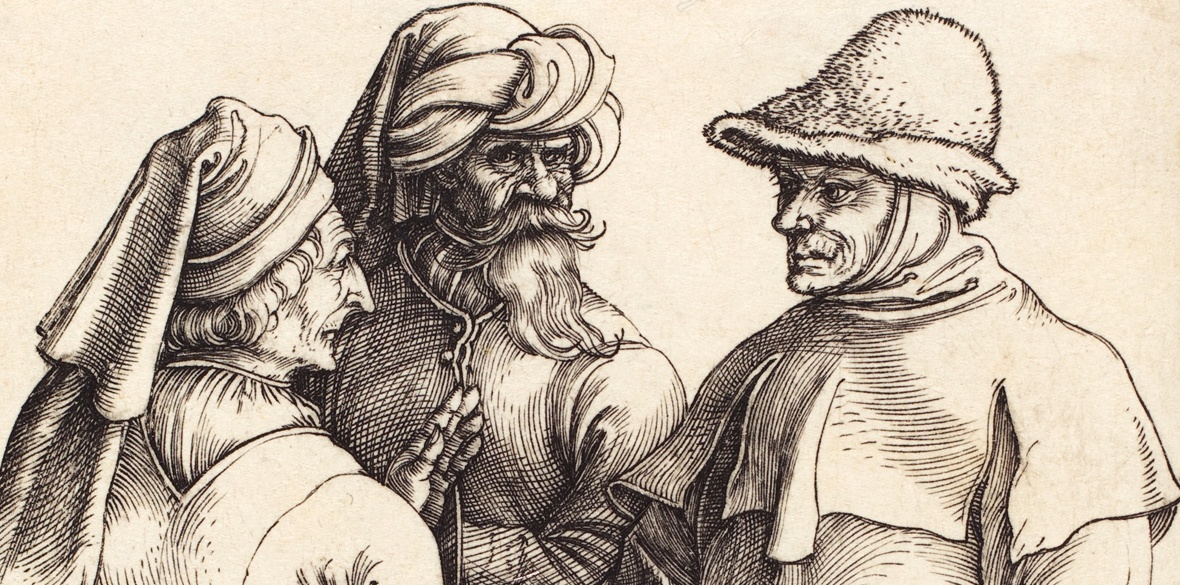This is the last article you can read this month
You can read more article this month
You can read more articles this month
Sorry your limit is up for this month
Reset on:
Please help support the Morning Star by subscribing here
THE SON of a goldsmith, Albrecht Durer was born 550 years ago on May 21 1471. He came into the world during the upheaval of the Renaissance, the era that rang in the early modern age. It was a time of both religious upheaval and when the peasantry in Europe rose up and demanded to be treated as equals.
Popular social opposition became part of the Reformation movement, which posed a religious and political challenge to the Catholic church and, particularly its papal authority. It began with John Wycliffe in England and culminated in Germany, where Martin Luther played a key role in the birth of the Reformation.
Yet, as Friedrich Engels describes in The Peasant War in Germany, Luther was afraid of the socially explosive effect his challenge to Rome’s hierarchy had on the peasants, who understood it to coincide with legitimate aspirations to improve their own lot.
But Luther’s theological reform did not question class antagonisms and he, along with the bourgeoisie, turned against the revolutionary peasants. They and their urban plebeian allies were defeated and their leaders imprisoned and executed.
In this context, the significance of Durer’s portrayal of the peasantry cannot be underestimated and that influence can be seen in many other artists, infusing German art of the Reformation period with a haunting popular appeal.
Durer spent time in the Netherlands from 1520-21 and it was there that he produced The Negress [sic] Katherina, a remarkable portrait drawn from life. It shows the artist’s great interest in people who came to Europe because of growing international trade, including the slave trade, and her name suggests that she had converted to Christianity.
The woman depicted is a 20-year-old servant of a Portuguese commercial agent who administered the Portuguese spice monopoly in Antwerp and probably acquired this African woman through trade connections. Durer infuses her portrait with great dignity.
Durer was the first German artist to portray peasants as aesthetic subjects and they make a significant appearance in the revolutionary pamphlets of the time.
The copper engraving Three Peasants in Conversation shows a trio of armed, intelligent and dignified peasants in serious discussion. One of them carries a rapier, another has a knife in his pocket and spurs on his shoes. The third figure reaches into his waistcoat, from which he might possibly produce a leaflet.
Durer also set an example during the Peasants’ War. Luther advised that the princes slaughter the rebellious peasants in their widespread revolt in Central Europe from 1524 to 1525, which failed because of intense opposition from the aristocracy, who slaughtered up to 100,000 of the 300,000 poorly armed peasants and farmers.
In the third book of his 1525 instruction manual in measurement, Durer’s model for the proportioning of a monument is a woodcut commemorates the defeated peasants. It shows livestock and household and agricultural equipment from a peasant holding, now the booty of the conquerors.
Crowning the pillar is a peasant pierced by a sword, the posture of Christ at rest. The slain peasant is his true follower.
Such professions of support for the revolutionary peasants was a far from safe gesture at the conclusion of that brutal war. Many artists suffered persecution, torture and death and Durer ceased all artistic activity. Turning to scientific pursuits, he died at the age of 57.
Like many of the greatest artists of that time in Germany, he remained close to the common people and their revolutionary aspirations. He fought with the weapons of his art.









